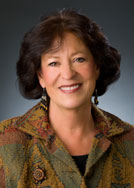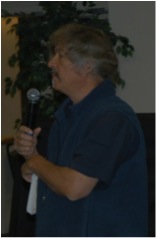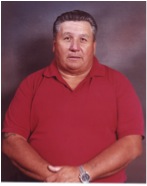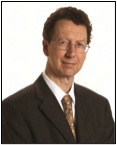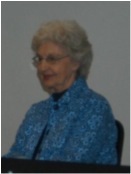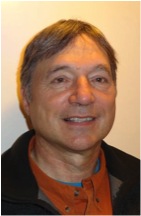Panelists looked back at the years of controversy and conflict at the boat landings in Wisconsin; namely, the protests, rallies, violence, threats, and racial slurs which characterized each spring from 1985 to 1991. Highlighted was the story of how implementation of treaty rights took place in the face of the myths, misconceptions, and ill-informed media that fueled the anti-treaty movement and stirred unfounded controversy. The claim that treaty rights harmed tourism was examined within the context of the changes occurring in the sport hunting and fishing industry nationally, as well as the changing economy, and the new directions in tourism at the time. Noted was the ease to blame the Ojibwe for these complicated issues. Positive social impacts of the times were also noted, such as the increased cooperation of schools, churches, law enforcement, and the passage of Act 31, which provided for Native American curriculum at three different levels in public schools.
(Note: Each speaker section includes: photo, biography, speech excerpt, downloadable pdf of full speech, and each Youtube video link.)
Moderators:
|
Patty Loew is an Associate Professor in the Department of Life Science Communication at UW-Madison where she teaches Native American environmental issues and the media and digital video documentary productions, which we were all privileged to see during our lunch break. She also produces documentary segments and hosts ‘In Wisconsin’, a statewide news and public affairs program for Wisconsin Public Television. An enrolled member of Bad River Band, Patty has produced more than a dozen award-winning documentaries on Native American topics, including "Spring of Discontent," which aired regionally on ABC affiliates, and "Nation Within a Nation," which aired on PBS. Her newest documentary, "Way of the Warrior," which examines the role of Native American veterans in the 20th Century, aired nationally on PBS in November, 2007. Her book, "Indian Nations of Wisconsin, Histories of Endurance and Renewal," won the Wisconsin Library Association 2002 Outstanding Achievement Recognition Award. In 2003, the State Historical Society's Office of School Services published a children's version of the book. In 1998, Patty received her Ph.D. from the School of Journalism and Mass Communication at the University of Wisconsin-Madison.
Note: Patty Loew and James Thannum’s article, “After the Storm: Ojibwe Treaty Rights Twenty-Five Years after the Voigt Decision,” was printed in the American Indian Quarterly Volume 35, Number 2, Spring 2011 edition. Follow link to view this article: Read Article |
|
|
||
|
||
|
Rick St. Germaine, Professor of History at the University of Wisconsin-Eau Claire, is a member and former Chair of the Lac Courte Oreilles Band of Lake Superior Chippewa Indians. He received his BA in Secondary Education at the University of Wisconsin, Eau Claire and his M.Ed. and Ph.D. in Educational Administration from Arizona State University in 1972 and 1975 respectively. He spent two years, 2000-2002, at Harvard University where he was Senior Visiting Scholar with the Kennedy School of Government and Lecturer with the Graduate School of Education, Cambridge, MA. Rick provides extensive school professional development training services, including significant contributions in developing curriculum and providing training to implement “Act 31,” Wisconsin’s Law requiring public schools to teach Native American History, culture, and treaty rights. He recently helped found the Life Skills Center for Leadership, a non-profit organization whose goal is to positively impact the lives of high risk American Indian youth through intensive training and adventure-based learning experiences, as well as coordinated planning and development of two American Indian K-12 charter schools at Minisinaakwaang and Aazhoomog, Minnesota.
|
|
|
||
Panelists:
|
Tom Maulson is a member of the Lac du Flambeau Band and a former member of the Lac du Flambeau Tribal Council, including terms as the council president. He also was a judge for the Lac du Flambeau Tribal Court. Maulson served as Lac du Flambeau representative on the GLIFWC’s Board of Commissioners during the period 1989 to 2004, and he was Board chairman from 1994 to 2004. He has been either a representative to or the chair of the Commission's Voigt Intertribal Task Force from its inception in 1985 to present, serving as the Task Force chair from 1986 to 2008. Tom is well-known for his role as Task Force spokesperson and in exercising treaty rights during the turbulent times of the late 1980's when there were boat landing protests during tribal spearfishing seasons in northern Wisconsin.
|
|
|
||
|
Brian Pierson, of Godfrey and Kahn, Attorneys at Law, leads the firm’s Indian nation law practice group. He is a cum laude graduate of the University of Wisconsin Law School in 1983. Brian clerked for Federal District Judge Myron Gordon before entering private practice. He won the ACLU-Wisconsin Civil Libertarian of the Year Award for his representation of Chippewa spear fishers in the federal court lawsuit against hooligans seeking to prevent tribal members from exercising off-reservation fishing rights reserved in the treaties of 1837 and 1842. The suit, Lac du Flambeau v. STA, resulted in a permanent injunction against interference with treaty protected spearfishing.
|
|
|
Sharon Metz is the founder of HONOR, Honor our Neighbors Origins and Rights. Sharon served as HONOR's Executive Director from 1990 to 1996. Under her guidance, HONOR was able to organize a national Native rights advocacy network, bringing in a strong non-Indian support to stand with the tribes on a variety of issues. Her commitment to human rights has been long and well-lived. A graduate of UW-Green Bay with a major in communication, a minor in business administration, she served as a VISTA volunteer and program assistant during the periods 1971 to 1974. In 1975, Sharon was elected to the Wisconsin Assembly representing the Green Bay area, where she served through 1987 and was an active member of the Assembly Committee on Indian Affairs. Following her political career, she became the Executive Director of Lutheran Human Relations in Milwaukee from 1987 to 1990, continuing her support of Native rights in that position.
|
|
|
||
|
Don Wedll moved to Alaska in June 2009, and he now serves as the NEPA coordinator for the Association of Village Council Presidents in Bethel. Prior to that, he worked for the Mille Lacs Band in Onamia, Minnesota during the period 1974 to 2008, serving in a number of capacities, including Commissioner of Education, Chief of Police, Commissioner of Natural Resources, long-range planner and advisor to the chief executive. He was educated as a mathematician and a teacher. As Commissioner of National Resources, Don served as Mille Lacs representative to the GLIFWC's Board of Commissioners from 1985 to 2001, serving as the board vice-chair on the Board's Executive Committee for a number of years during that tenure. He also served as the tribe's representatives to the Commission's Voigt Intertribal Task Force from its inception in 1983 to 2001. Wedll was instrumental in achieving recognition and implementation of treaty rights in the 1837 to 1842 ceded territories and particularly in achieving successes realized in the Mille Lacs versus State of Minnesota case.
|
|
|
||

